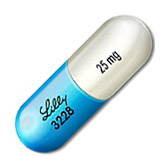Strattera

Strattera
Strattera is among the most popular choices when it comes to treating ADHD (attention deficit hyperactivity disorder). The advantage of Strattera over other ADHD drugs is that it can be used both by adults and children. Strattera is also classified as a non-stimulant drug, which means it’s likely to cause fewer or no side effects and will work better for the patient. For instance, when you buy Strattera online, you are making sure you or your child will not experience sleepiness or agitation, plus there will be no risk of developing an addiction. All these factors are important to take into account when deciding whether Strattera is the right drug for your child or yourself. Since it’s so easy and affordable to buy Strattera online these days, it’s another option you may want to seriously consider. After all, buying Strattera online means spending less money and time while still getting the same quality, and there is no reason to miss out on such a great opportunity. Having a reliable online pharmacy to order Strattera from means you will be getting better deals and bulk prices, as well as fast delivery to your doorstep. Since Strattera usually has to be taken for longer periods, it’s best if you order it in bulk, that way saving yourself a considerable amount of money. Strattera needs to be taken regularly and at the exact dose prescribed. Taking it at regular intervals will help you avoid missing any of the doses, which may result in the return of the symptoms you are trying to control.
Side Effects
Strattera side effects may appear in some patients, while most other patients will be able to carry on with their treatment without experiencing any. The following symptoms are known to occur in patients just starting the treatment: mood swings, decreased appetite, upset stomach, nausea and dizziness. However, those side effects are likely to affect only a few percent of patients and usually disappear on their own.